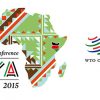
Beyond its specific results –the commitment to limit global warming, to lower global temperature this century to 2 degrees –or even 1.5– above the levels of the pre-industrial era and to make carbon energy a thing of the past–, the Paris Climate Summit (COP21) has given rise to a new type of governance, as regards both the diplomatic route towards the agreement and its foreseeable implementation. The process has been undertaken from the bottom up, not only in the negotiations but for the implementation of decisions too.
Thus, it has been ‘inductive’ rather than deductive, as French diplomacy calls it, and differed from coordination, which is typical of the G-20 and G-7/8 meetings. Furthermore, the resulting deal is not an international treaty, given the crisis in the drawing up of new international laws because, except for the International Treaty on the Arms Trade of 2013, there have been no major new treaties since the Rome Statute of the International Criminal Court in 1998 –and to which civil society organisations also contributed–.
To begin with, the vast majority of countries –170 out of 195–, plus the EU, represented at the Le Bourget summit had filed national plans for reducing emissions of greenhouse gases a week beforehand. This is very different from the methods employed for the Protocols of Kyoto of 1997 (from which several countries –including the US– then withdrew) and of Copenhagen in 2009, when limits were attempted to be imposed from the top down. On this occasion, the obligations have sprung from the countries themselves. In many cases, especially as regards the heaviest polluters, this has been the result of their own national priorities: the US, undergoing fast-track gasification due to its availability of new natural resources, is already in the process of reducing its emissions; China’s regime is under pressure from its own public opinion to combat the heavy pollution in the country’s largest cities and wants to reduce its energy dependence on imports; and European countries are increasingly choosing cleaner options such as solar and wind power, and also moving away from nuclear energy, although some countries, such as Poland, persist in their use of coal and in the UK Cameron has abolished subsidies for carbon capture.
The agreement rests on the UN system, particularly the UN Framework Convention on Climate Change (UNFCCC). Its implementation, seen as a point of departure rather than of arrival, also sets a precedent in its use of what is often referred to as ‘naming and shaming’, based on the Capacity-building Initiative for Transparency contained in the text. From 2020 onwards, every five years each country will have to publicly present an update of its voluntary national plan for reducing greenhouse gas emissions, to be examined by a committee of independent experts, who will verify the data, and later published on the UNFCCC website. Global and domestic public opinion, as pointed out by Jeffrey Sachs, and social condemnation, as noted by Teresa Ribera, should thus play a significant role. This should foreseeably lead to civil society becoming more organised in order to better pressure governments. The path seems open to governance on this issue becoming far more transparent and for public opinion having a greater leverage on governments, even in authoritarian systems such as China’s.
This type of pressure has been gaining ground over the past 20 years and is one of the reasons underlying the summit’s success. The implication is that, as many scientists have been insisting on for years, global warming is essentially the effect of human activity. If the agreement has been at all possible, as indicated by Paul Krugman, it is also because new technologies have changed the game.
Nevertheless, the main political factor for its success, in addition to France’s skilful diplomacy, has been that it has been supported and led by China and the US –another sign of a new age of governance–, without whom nothing would have been achieved as they are the world’s heaviest emitters of CO2 (at 27% and 15% of the total, respectively, followed by Europe, at 10%). They have supported the agreement precisely because it is not legally, but only politically and morally, binding. Obama would never have managed to get it ratified by a Congress dominated by Republicans in the hands of energy-company lobbies, which have shown not the slightest concern about the agreement, since they believe it will change nothing for them. Nevertheless, a new dynamic has been established, even if a Republican enters the White House and does not feel bound by the accord.
It is neither an international treaty in the strict sense nor binding for the 196 participants in Paris. But it is the first global agreement on climate in 18 years, a period during which the situation has severely deteriorated. No penalties have been foreseen for countries who breach it –although note that until recently the EU itself was built without sanctions, which it has subsequently had to introduce–. Many of the accord’s elements are based on a voluntary commitment and it is due to take effect from next April, when 55 countries accounting for at least 55% of global emissions sign, ratify or accede to it.
Its financial dimension, necessary to help developing countries grow without increasing their emissions –a crucial issue, as they consider they have not had the opportunities exploited by the industrialised world in the past past– remains open. The proposal that the richest commit to help the poorest with a US$100 billion package each year was rejected, although France will continue to promote it at upcoming meetings. But at least the way is now clear for an in-depth re-orientation of development-aid policies.
There are two further issues in the agreement that should also be noted: the roles played by cities, essential in this type of governance as they are the largest emitters, and by the empowerment of women and intergenerational equity in the fight against global warming.
So, welcome to the new inductive governance system, which must now be put to the test. It involves not only States but also societies, citizens and businesses. Something quite novel is breaking through: it remains to be seen how it is managed and what results it produces.


